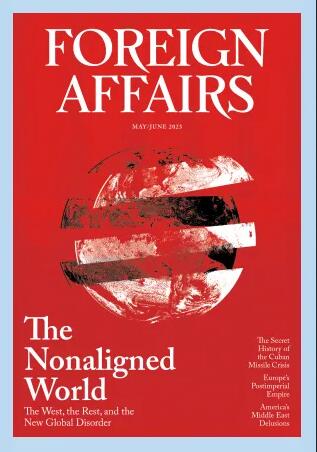比利时反对分裂主义的经验
IF 6.3
2区 社会学
Q1 INTERNATIONAL RELATIONS
引用次数: 0
摘要
现代世界的许多国家都面临着分离主义的问题,这不仅会威胁到单个国家的福祉,也会威胁到整个世界秩序。因此,有必要以其他国家,特别是比利时为例,研究和利用对付这一现象的经验。在这个国家,社会矛盾不断,最终分裂主义情绪贯穿了整个独立时期。本研究的目的是研究比利时历史上打击分离主义的方法,并分析在这个国家目前的发展阶段可能使用这些方法来对抗分离主义情绪。在研究过程中,运用了分析、综合、抽象、具体化、概括等理论知识的方法。研究结果确定,由于古代历史上现代比利时领土上发生的事件,在这片领土上形成了不同的民族。在研究过程中,有人指出,在获得独立后,两个成熟的民族社区被合并为一个国家。瓦隆对佛兰德斯的统治是造成社会矛盾的原因。已经确定,达成妥协是对付在许多历史事件中表现出来的社会抗议和分裂主义的主要方法。事实证明,使用强力的斗争方法是无效的。在使用妥协决定方法的同时,联邦当局的平衡原则对比利时来说是重要的。结果表明,许多决定(尽管它们能够保持比利时的统一)增加了种族群体之间的社会矛盾。本研究对比利时的反分离主义问题提供了一个新的科学视角,并分析了这些方法如何影响现代性以及解决现代问题的可能变体本文章由计算机程序翻译,如有差异,请以英文原文为准。
Experience in the fight against separatism in Belgium
Many countries in the modern world have faced with the problem of separatism, which can threaten not only the well-being of one individual state, but also the world order as a whole. Thus, it is necessary to study and use the experience of countering this phenomenon on the example of other countries, in particular, Belgium. In this country, there were social contradictions, and eventually the separatist sentiments throughout the entire period of independence. The purpose of this research is to study the methods of combating separatism in the history of Belgium and to analyze the possible use of these methods to counter separatist sentiments at the present stage of development of this country. In the course of this study, a number of methods of theoretical knowledge were used: analysis, synthesis, abstraction, concretization and generalization. As a result of the study, it was determined that different ethnic groups were formed on this territory due to the events unfolded on the territory of modern Belgium, back in the days of ancient history. In the course of the study, it was stated that after gaining independence, two mature national communities were combined in one state. The domination of Wallonia over Flanders was the cause of social contradictions. It has been determined that reaching a compromise is the main method of counteracting social protests and separatism, which manifested in many historical events. It is substantiated that the use of forceful methods of struggle was ineffective. Simultaneously with the use of method of compromise decisions, the principle of balance in the federal authorities is important for Belgium. The results made it possible to note that many decisions (although they were able to preserve the unity of Belgium) increased social contradictions between ethnic groups. This study puts into science a new perspective on the issues of combating separatism in Belgium, and also provides an analysis of how these methods affect the modernity and what variants are possible for the solution of modern problems
求助全文
通过发布文献求助,成功后即可免费获取论文全文。
去求助
来源期刊

Foreign Affairs
INTERNATIONAL RELATIONS-
CiteScore
4.80
自引率
0.00%
发文量
2
期刊介绍:
Founded in 1922, Foreign Affairs is a prominent American magazine that focuses on international relations and U.S. foreign policy. It is published by the Council on Foreign Relations, an esteemed nonpartisan think tank and membership organization dedicated to analyzing U.S. foreign policy and global affairs. While the print magazine is released every two months, the website offers daily articles and publishes anthologies every other month.
 求助内容:
求助内容: 应助结果提醒方式:
应助结果提醒方式:


